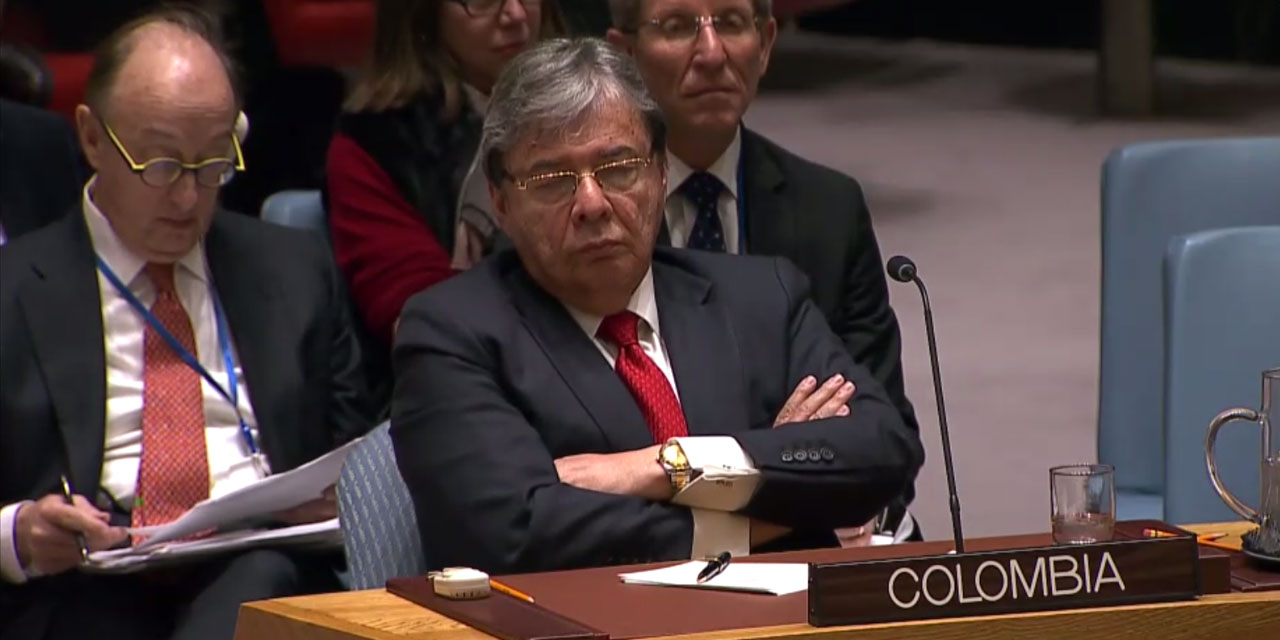Colombia’s foreign minister said Tuesday that he will formally accuse Cuba of sponsoring terrorism for hosting ELN peace negotiators who his own government refuses a safe return.
Foreign Minister Carlos Holmes Trujillo said he wrote the Cuban ambassador to Bogota to reiterate the demand Havana extradite the rebel leaders in violation of international agreements made by the previous administration.
The threat is the latest attempt to seek the extradition of the ELN leaders who the Colombian government is obligated to guarantee a safe return after President Ivan Duque said he would not continue peace talks after the ELN killed 21 police cadets in a terrorist attack in January.
Duque refuses to acknowledge state commitments
Controversially, Duque has refused to acknowledge his obligation to honor commitments made by his predecessor that force the government to allow the peace negotiators to safely reunite with their troops in the event peace talks break down.
Cuba and other guarantor countries have repeatedly told Bogota that the Cuban government would violate international agreements if it agreed to comply with Trujillo’s demands.
Colombia rejects international commitment to allow ELN rebel leaders to reunite with troops
Trujillo and his false claims
In his latest attempt to seek the extradition of the peace negotiators, Trujillo repeated the false claim that Havana must arrest and extradite the ELN leaders because the Colombian government issued a red notice with international police organization Interpol.
According to Interpol, however, this is nonsense. “Each member country decides for itself what legal value to give a Red Notice within their borders,” it says on the international police organization’s website.
As if that wasn’t enough, the foreign minister cited “the announced alliance between the ELN and the narcoterrorist group” of “Ivan Marquez,” who abandoned a peace process and rearmed last month.
Such an alliance was never announced. While Marquez said on YouTube he would seek to hook up with the ELN and other FARC dissident groups, no agreement was ever announced.
Is Trujillo going to make a fool of Colombia at the UN?
Trujillo said that “the government of Colombia respects and will enforce Resolution 1373” that was adopted by the United Nations’ Security Council two weeks after the September 11, 2001 terrorist attack in the United States.
According to the foreign minister, his government will “denounce those States that host, protect, finance or allow the circulation in their territory of members of groups that have committed, commit or plan to commit terrorist acts in Colombia before the highest instances of the UN.”
The UN Security Council, however, has been aware of the ELN leaders’ presence on Cuba since the peace talks moved there months before Duque took office and suspended talks in August 2018.
In fact, the ELN said in July that it had formally surrendered all the partial agreements made before Duque took office and suspended the talks.
If Duque won’t, then the ELN will: UN receives deals made in suspended peace talks
It is unclear how Trujillo came to the belief he can force the Cuban government to comply with international agreements while refusing to acknowledge his own government’s international obligations.
The Duque administration’s refusal to continue peace talks with the ELN and chronic noncompliance with the peace deal with the FARC has reignited armed conflict throughout the country.
The United Nations Security Council urged the government in July to implement the peace agreement with the FARC that is monitored by the UN.


